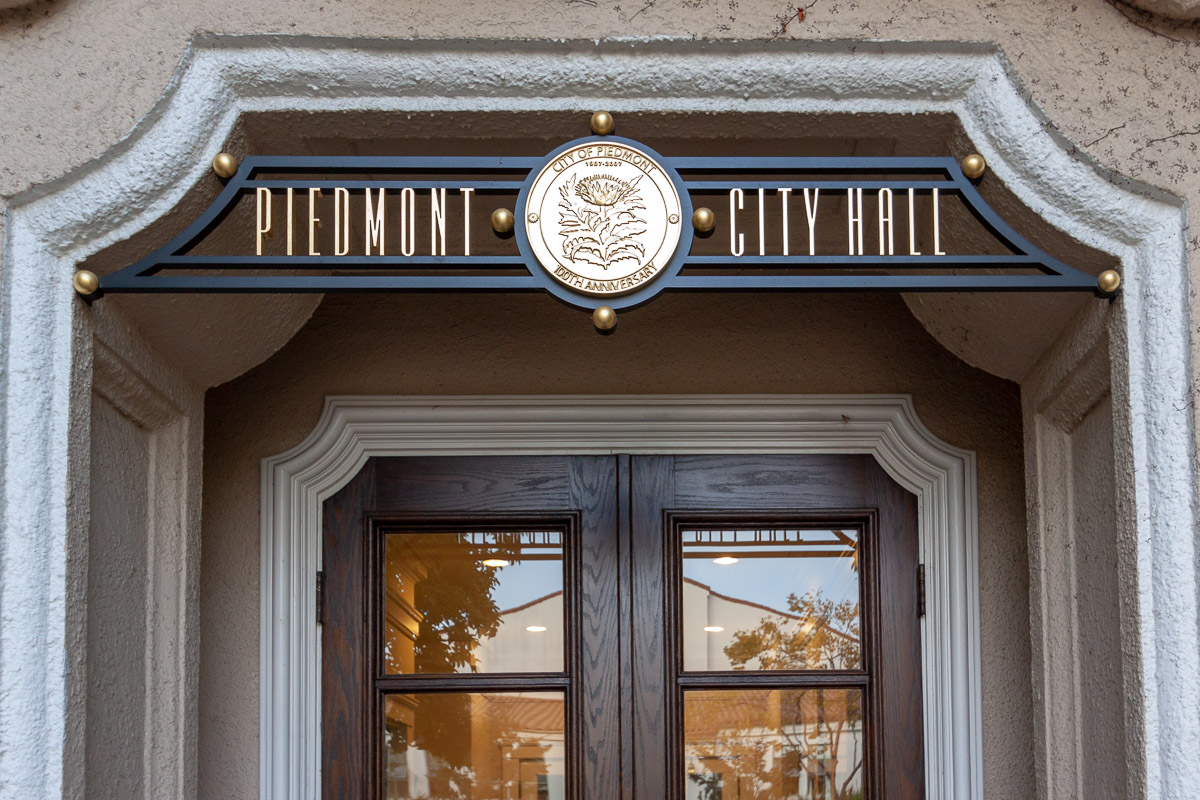After months of public discussion, and some notable tinkering, the City Council on Monday night unanimously approved a series of measures to bring energy savings and reduce natural gas use in Piedmont, to further the city’s long-term climate action goals.
The basics of the city’s “Reach Codes” program, to require electric appliances be installed as part of new housing construction or major renovation projects, were approved in July 2020. But a key change was approved Monday night — to allow homeowners whose structures achieve a “home energy score” of 7 or higher to skip making recommended upgrades because their structures already qualify as energy-efficient.
One of two related ordinances approved Monday night amends the city code to require preparation of a home energy audit for “low-rise residential buildings” of three or fewer stories to determine structures’ home energy scores. To receive an energy score, property owners arrange for an analysis via a third-party contractor. The best score possible, for the most energy-efficient homes and other buildings, is “10;” the worst is “1” (an average score is “5”). Major renovation projects for homes given a score of 7 or higher will not need to include the improvements proposed in the new Reach Codes ordinance.
This change comes after some concern that the reach codes, as proposed earlier, were unfair to residents who have already made energy efficiency improvements. City Planning Director Kevin Jackson called that change in the codes a “reasonable exception” to homeowners who already have taken significant steps.
For owners whose properties don’t achieve at least a “7” home energy score, renovation projects that cost $25,000 or more will require one item from a list of energy efficient insulation or heating system electrification improvements be included; projects costing $100,000 or more will require incorporating two items from that list.
On July 20, 2020, the City Council first approved the “reach codes,” so named because they “reach” beyond the state minimum requirements for energy use in building design and construction, to more effectively address slowing climate change. More specifically, the codes are envisioned as helping Piedmont meet its 2030 and 2050 greenhouse gas emission-reduction targets.
With adoption of the new codes, which take effect either June 1 or when they are certified by the California Energy Commission, newly constructed low-rise residential buildings, including new detached accessory dwelling units (ADUs), must use all electric building appliances. Projects proposing an entire new upper level on a low-rise residential building, or that increase a residential building’s total roof area by 30 percent or more, are required to install solar panels on that roof.
Alyssa Dykman, Piedmont’s sustainability program manager, said upfront costs for installation of solar panels figure to be $15,000 to $25,000, but that these costs would be recouped in seven to 10 years in energy cost savings. Federal Investment Tax Credits, Dykman said, could also help recover some of the upfront costs.
Tom Sullivan, one of the public callers to Monday night’s meeting, urged the council to continue to allow use of gas-fueled stoves for cooking purposes as part of new buildings or major renovations, asserting the amount of gas used for cooking is a fraction of that used for heating and for other appliances. But it was clear that council members, as well as most public callers Monday night, favored moving ahead with the tougher codes as a progressive measure to fight climate change.
“We’re fortunate people here (in Piedmont), and we should be leading on this; that’s the least we should do,” Moira Chapman told the council.
Vice Mayor Tim Rood said he is “hugely excited and enthusiastic” about the reach codes, and the environmental move forward they represent. “There’s obviously much, much more to do,” he added.
And Councilwoman Jen Cavenaugh said this move is needed, despite the spectre of scheduled PG&E power blackouts during dangerous fire seasons. “We shouldn’t be planning our year-round energy use around those short-term disruptions,” she said.
These codes, council members said, will have to be revisited every few years. For more information on Piedmont’s reach codes, go to https://piedmont.ca.gov/government/city_news___notifications/reach_codes
Contact Sam Richards at sam.richards4344@gmail.com

Most of the reach codes are energy efficiency measures that reduce GHG and save money. Win win benefits. The electrification and solar panel requirement will apply to very few projects and are already being implemented statewide to fight climate change. And in Piedmont the codes apply to only 30% of annual permits.
I recommend others watch the meeting and listen to the comments from 75 students. Amazing. That’s all the benefit I need.
This is very disappointing and will benefit noone in Piedmont and only cause homeowners unneeded regulations that will inhibit construction work and jobs.